
Devin Gallery Achieves IB Educator Certification, Ready to Share His Expertise
Mr. Devin Gallery, an Individuals and Societies and PHE teacher at GNS, has reached a significant milestone in his career. … Continued
Grades 11 and 12

There are almost as many academic pathways for GNS students as there are students.
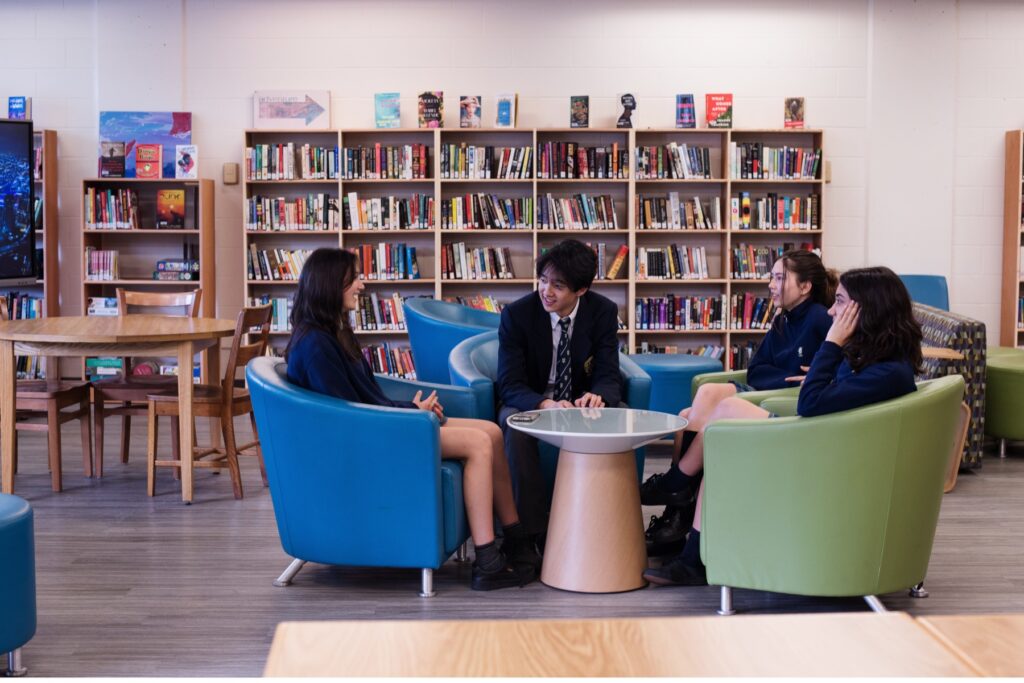
Students in Grades 11 and 12 can choose to study:
All students who complete the requirements to graduate Grade 12 in BC receive a Dogwood Diploma. To also receive an IB Diploma from the International Baccalaureate Organization, students must complete the requirements stipulated by the IBO.
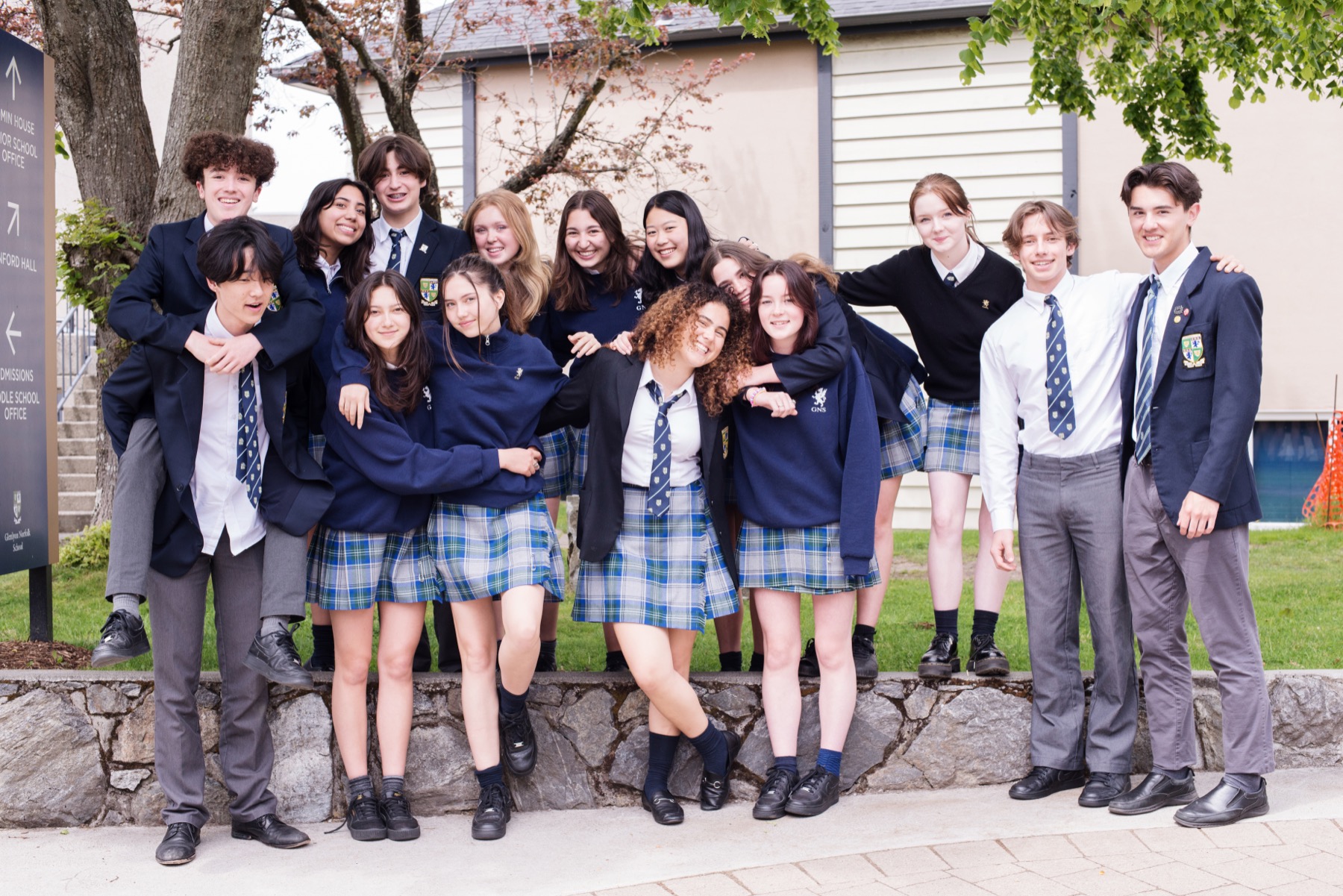
Glenlyon Norfolk School has been authorized to offer the IB Diploma Programme since 1996. Over that time, there has been a lot of change in education. Still, the one thing that has remained consistent is the commitment of the International Baccalaureate Organization to always be at the forefront of those changes.
For our school and our families, this is exciting as it means we are able to offer an enriched internationally-recognized curriculum that educates the whole student.

Mr. Devin Gallery, an Individuals and Societies and PHE teacher at GNS, has reached a significant milestone in his career. … Continued

For almost 30 years, GNS has been at the forefront of nurturing personal and academic excellence through its participation in … Continued
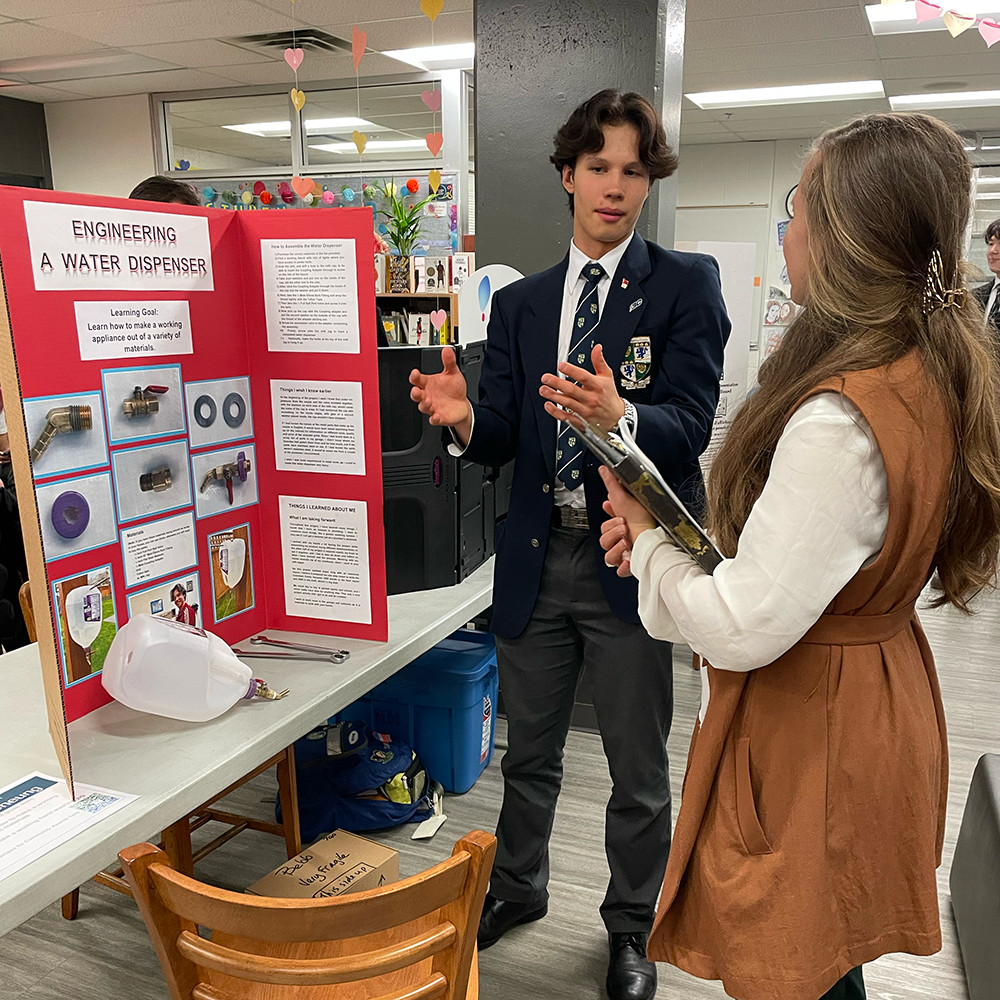
The Grade 10 Personal Project Exhibition is the ultimate showcasing of the students’ projects. This year, there were a variety … Continued
The core of the IB Diploma Programme—CAS, the Extended Essay and Theory of Knowledge— are designed to help students develop a well-rounded and holistic understanding of themselves and the world around the. The core components will help your child develop important skills, such as critical thinking, research, writing, and reflection, encourage them to be active, engaged, and responsible members of their communities.
The CAS programme allows students to develop breadth and depth within the activities they pursue outside of their academic programme by providing a framework for their co-curricular endeavours. It requires students to engage in a range of experiential learning activities outside the classroom, such as community service, sports, and creative pursuits.
CAS helps students develop important life skills such as leadership, teamwork, and time management, and encourages them to be active and engaged members of their communities.
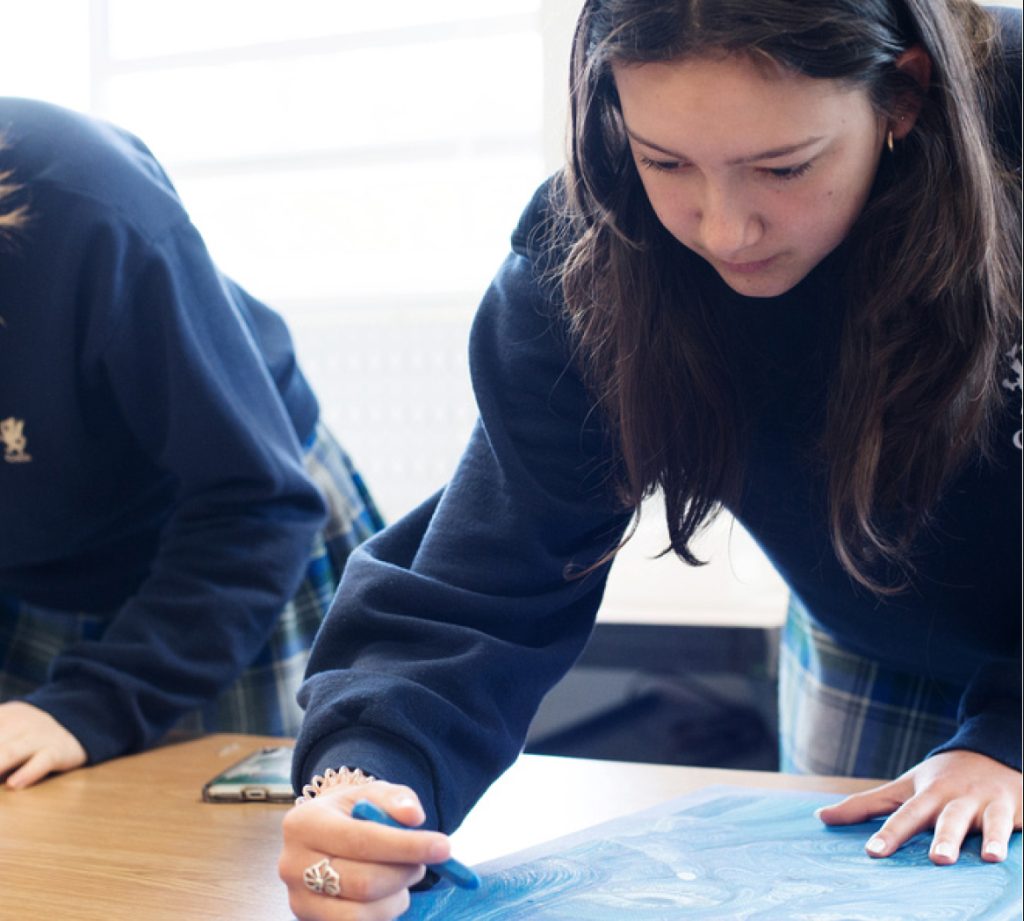
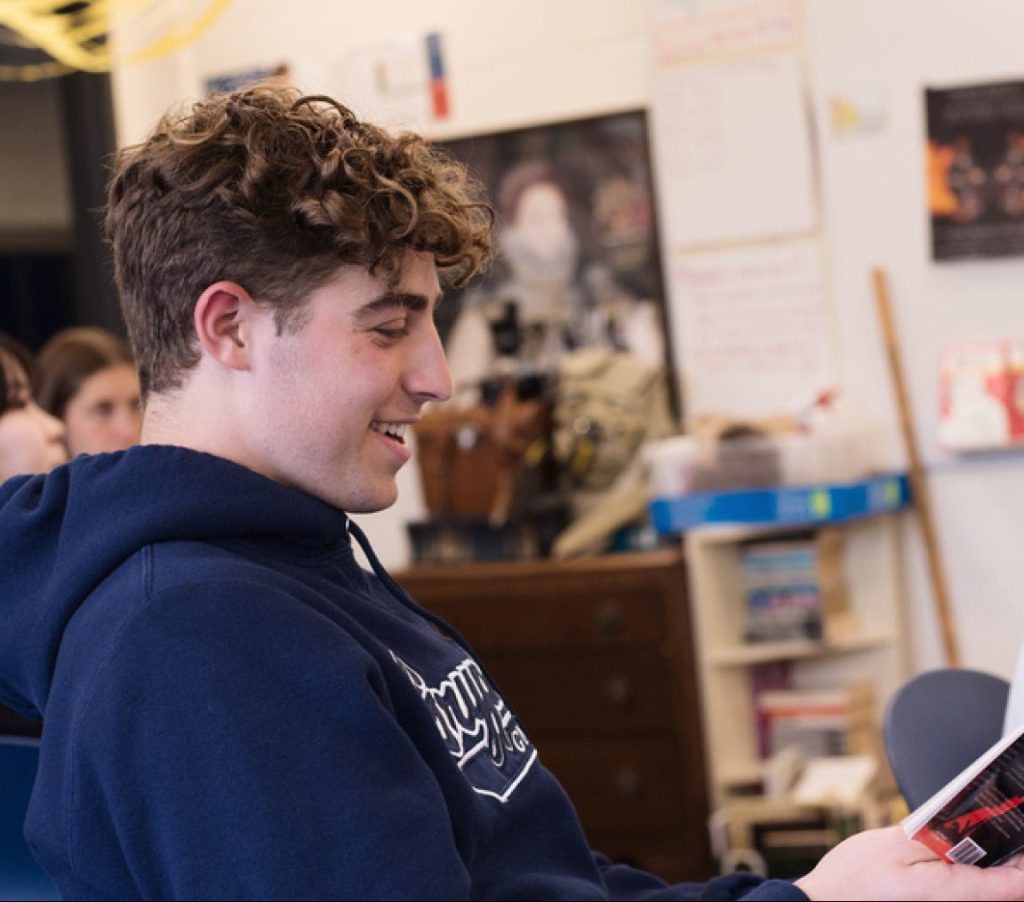
The Extended Essay is an independent, self-directed, 4000-word academic research paper. It provides an opportunity for students to research a topic of personal interest that is related to one of their six DP subjects. Each student works with an EE supervisor throughout the process to focus their research and hone their writing.
The EE provides practical preparation for undergraduate research as it enables students to develop the capacity to analyze, synthesize, and evaluate knowledge.
Theory of Knowledge is a unique course where students explore ideas from a variety of disciplines and perspectives. The emphasis is on exploring real-world knowledge issues, with the goal of helping students learn to question their own assumptions so they become flexible problem solvers.
This course encourages students to reflect critically on the nature of knowledge and how it is acquired, exploring questions such as “What counts as knowledge?” and “How do we know what we claim to know?”.
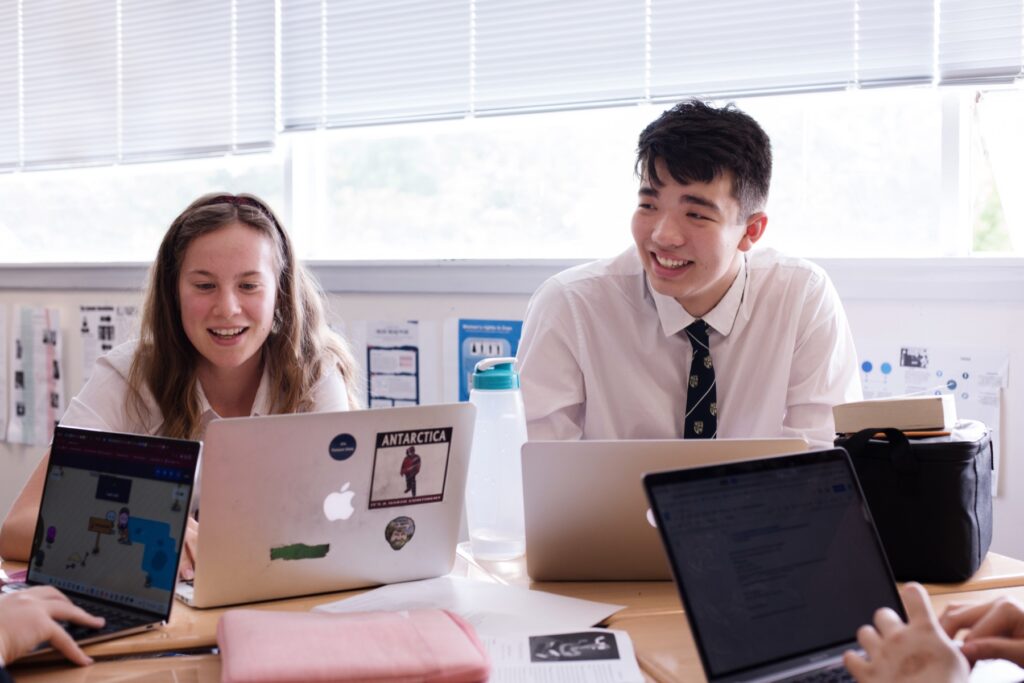
GNS is an IB Continuum school offering the Primary Years Programme, the Middle Years Programme, and the Diploma Programme. As all students at the Junior School are involved in PYP, and all students in Grades 6 to 10 are involved in MYP, it is natural to assume that the expectation would be that all students in Grades 11 and 12 must be involved in the DP.
To a certain extent, this is true; however, not in the way you might think. All students will be involved in the Diploma Programme in Grades 11 and 12 in some capacity, but we offer students voice and choice as to their level of participation. You may have heard us refer to the different pathways toward graduation or the ‘best fit’ approach and wondered what exactly this means.
Students may choose to start Grades 11 and 12 as full Diploma Candidates. This pathway involves students taking six IB Diploma Courses and participating in the Core: CAS (Creativity, Activity and Service), the Extended Essay (EE), and Theory of Knowledge (ToK). The programme begins at the start of Grade 11 and continues until May of Grade 12.
Students may also choose to start Grades 11 and 12 as Course Candidates. This pathway has two possibilities:
It is important to know that a great deal of coaching and conversation occurs to support students and families in deciding on the best fit.
Yes! A recent study examined the success of International Baccalaureate (IB) Diploma Programme (DP) graduates across two of Canada’s largest high-school-to-university pathways: specifically, the Toronto District School Board (TDSB) to the University of Toronto (UofT), and public high schools in the Greater Vancouver Regional District (GVRD) to the University of British Columbia (UBC). The results showed that DP graduates:
Graduates of this two-year programme, considered the gold standard in university preparation, are accepted enthusiastically into universities around the world, who often reward our students’ hard work by honouring IB Diploma Higher Level credits as first-year university credits.
Yes, for HL courses in which student obtains a final grade of 5, 6 or 7, most universities offer transfer credit for both full Diploma and Course (partial) candidates.
The IB Diploma is a two-year comprehensive curriculum with a culminating set of externally graded final exams. Advanced Placement (AP) is also an university preparatory, academically rigorous program. There are important differences, however, in the content and exams. The DP is a cohesive and comprehensive program, not a collection of individual courses as is the case with Advanced Placement. Compared to AP classes, IB classes and assessments tend to involve more research, writing, and hands-on evaluation over rote learning and standardized tests. The most important distinguishing factor is the core of the Diploma Programme (CAS, TOK and the extended essay).
Creativity, Activity, and Service (or CAS) is one of the elements found at the Core of the IB Diploma Programme. It is a framework under which DP students engage in co-curricular pursuits and supports students in maintaining a balanced approach to their studies. The CAS Programme is the only aspect of the Diploma Programme that is not assessed; however, all students must complete this aspect to earn their IB Diploma.
In addition to the breadth and depth students are required to select their academic subjects across the six subject groups, in CAS, students are required to engage in each of the three strands of Creativity, Activity, and Service over 18 months of the programme (September of Year 1 to April of Year 2). Each student’s CAS portfolio is unique to them which allows them to lean into their passions as well as be risk-takers and try new endeavours.
Students are supported by a CAS Advisor who is assigned to them as well as our CAS Coordinator, Mme Girard.
Students must document their CAS journey in ManageBac by logging each CAS experience they are involved in and reflecting upon it along the way as well as providing evidence of their learning.
For many students, their involvement in CAS not only fulfils the requirements of the Diploma Programme but is also very useful once students begin applying to universities and scholarships as they are able to draw upon their CAS experiences to respond to personal profile questions and include them in supplemental documentation.
Students participate in three CAS interviews or touch points throughout the 18 months and when asked at the end what role CAS played in their DP journey, they will often say, “It forced me to find balance without which I would have focussed mostly on my classes. I now get how important it is to balance out my academics with co-curricular and service activities and I plan to keep doing this at university.
Theory of Knowledge is a unique course where students explore ideas from a variety of disciplines and perspectives. The emphasis is on exploring real-world knowledge issues, with the goal of helping students learn to question their own assumptions so they become flexible problem solvers. The course is organized around a series of Big Questions related to topics such as values, spin and biases.
These are explored in the context of different areas of knowledge, including the arts, history, and the natural sciences. Because the course is focused on critical questioning and team learning, rather than upon the mastery of a defined body of knowledge, student-led discussion and journal entries drawn from their personal experience form a major part of the program. The final assessment involves writing a 1600-word essay an IBO-prescribed topic that explores a chosen Big Question.
Another of the three key elements found at the core of the IB Diploma Programme, the Extended Essay (EE) is an independent, self-directed, 4000-word academic research paper. It provides an opportunity for students to research a topic of personal interest that is related to one of their six DP subjects.
Each student works with an EE supervisor throughout the process to focus their research and hone their writing. The EE provides practical preparation for undergraduate research as it enables students to develop the capacity to analyze, synthesize, and evaluate knowledge.
Some examples of EE topics:
The difference between the two levels is subject specific, but Higher Level courses require 240 class hours and Standard Level courses require 150 class hours over the two years of the DP. In each subject area, there is core content that is common to bother levels; however, in Higher Level courses, additional content is studied at a deeper level.
Teachers use subject-specific and level-specific rubrics to assess student work as required by the IBO. Universities around the world often reward our students’ hard work by honouring IB Diploma Higher Level credits as first-year university credits.
No, it would not be too difficult. In fact, we have a number of students who join us each year in Grade 11 specifically for the Diploma Programme. There may be a period of adjustment as students get used to different teaching styles and the assessment rubrics, but generally, this is not an issue.
Absolutely. GNS IB Diploma students lead very full lives. They are often members of athletic teams and involved in a wide range of activities. Time management and organisation are key skills the IB develops in students, which are valuable at preparing them for success at university and life beyond.
Leading up to the end of all IB Diploma courses at the end of April, there are a number of pieces that need to be wrapped up/completed.
As mentioned above, IB Diploma courses come to an end before the first IB exam. As such, if students are encouraged to request or attend extra help sessions with their teachers, if they need them.
As part of the Diploma Programme, students will take 3 courses at Standard Level and 3 at Higher Level. For most ex-immersion students, the HL course is a good fit. We also offer Spanish and Mandarin (the latter depending on student request numbers) at SL and HL. Neither of these courses is designed for beginners. If a student currently doesn’t have a second language, they could take Spanish ab initio as part of the Diploma Programme, which is for students who have never studied the language before. It is a fast-paced course that allows students to reach quite a high level over the two years of study.
If you have other questions about completing the IB Diploma Programme at GNS, please contact Angela Girard, our IB Diploma Coordinator (agirard@mygns.ca).